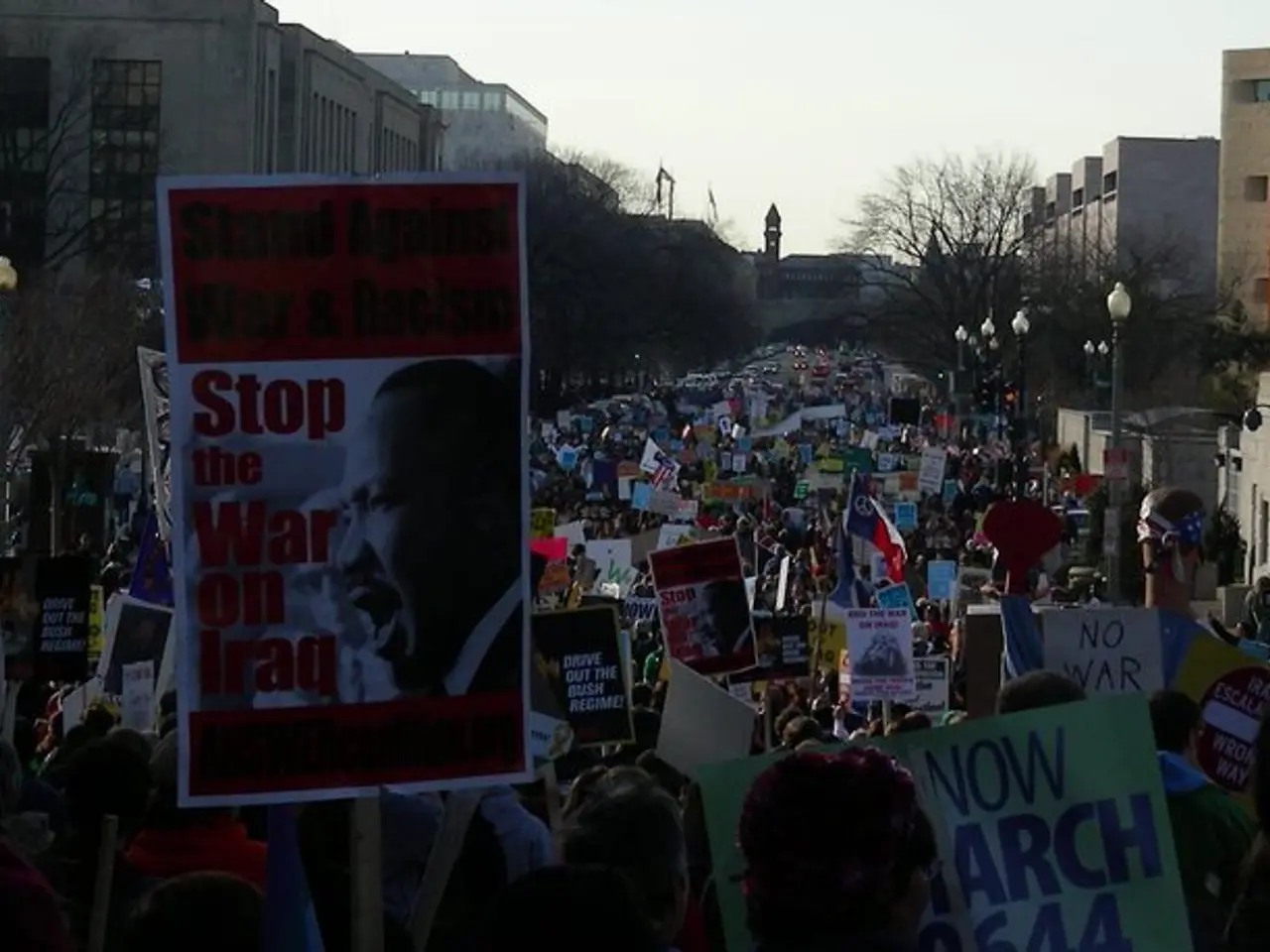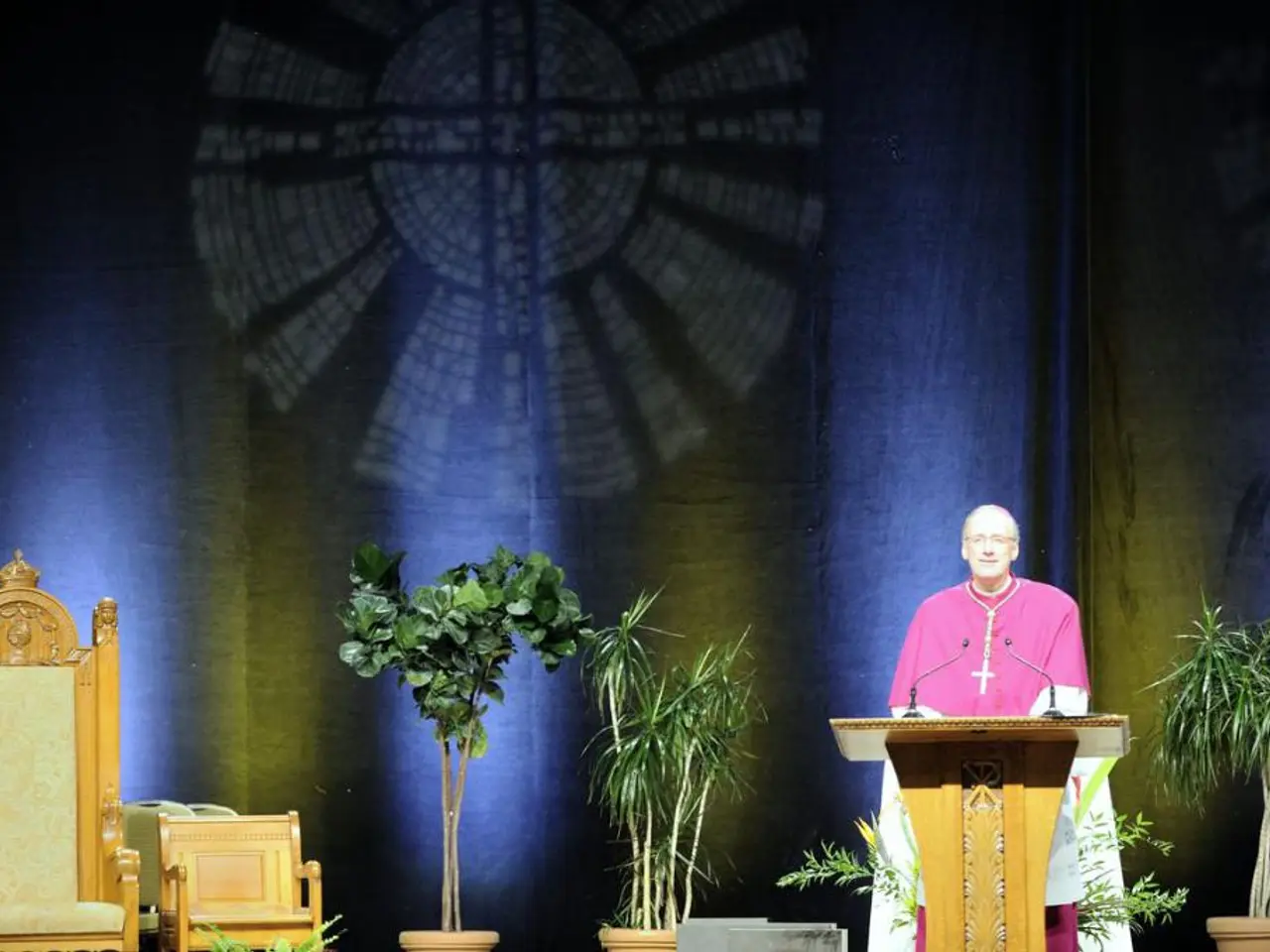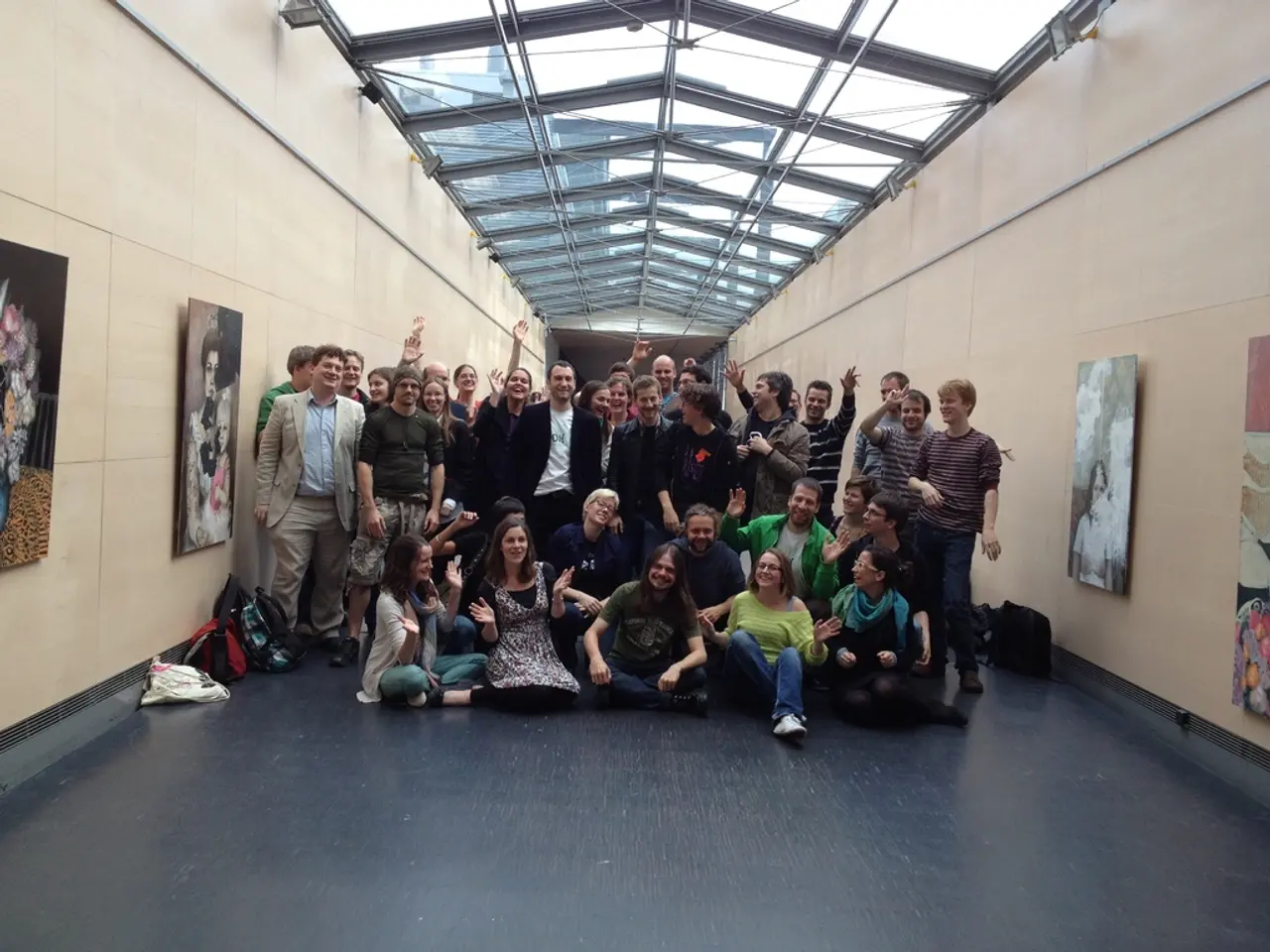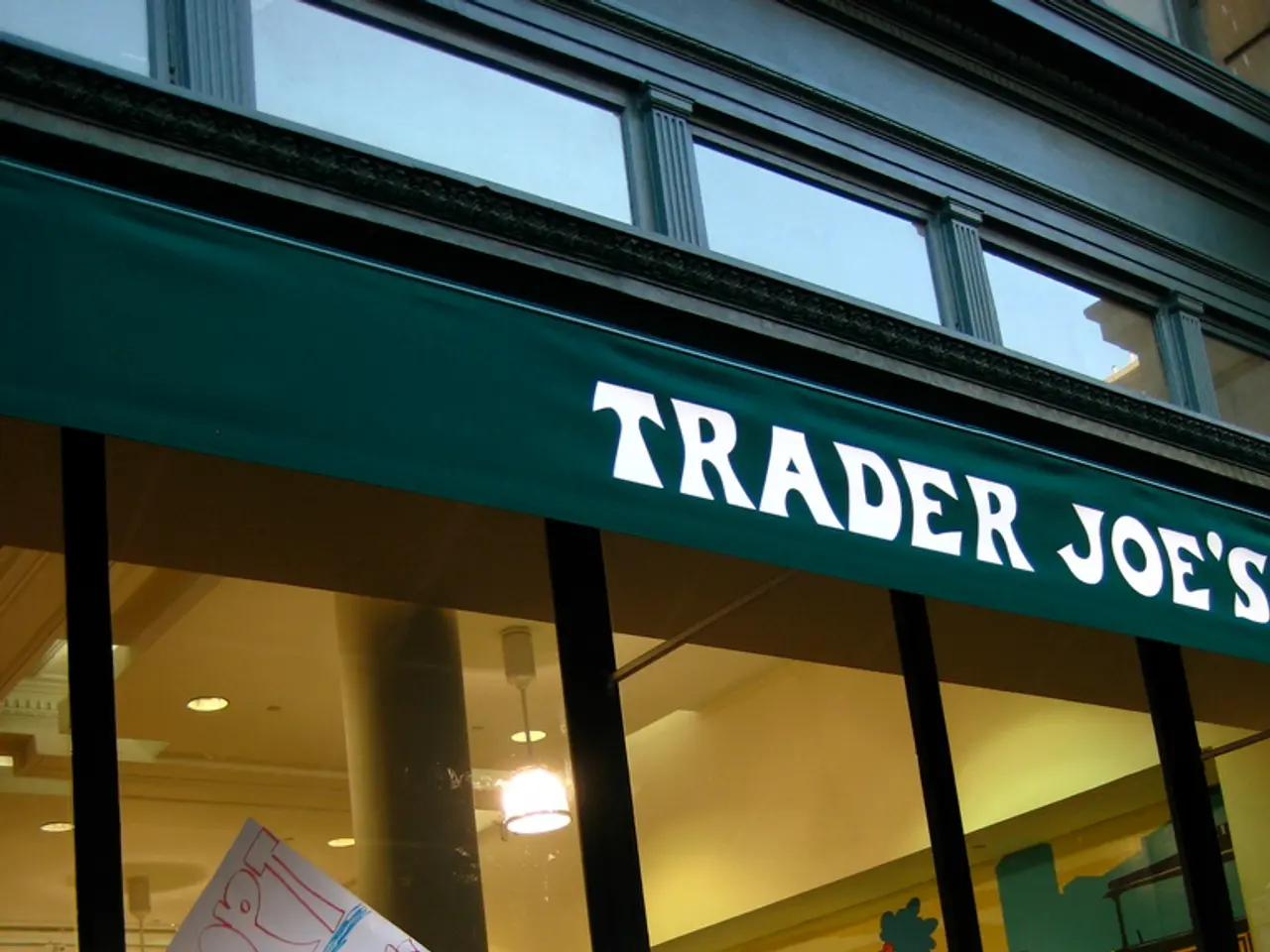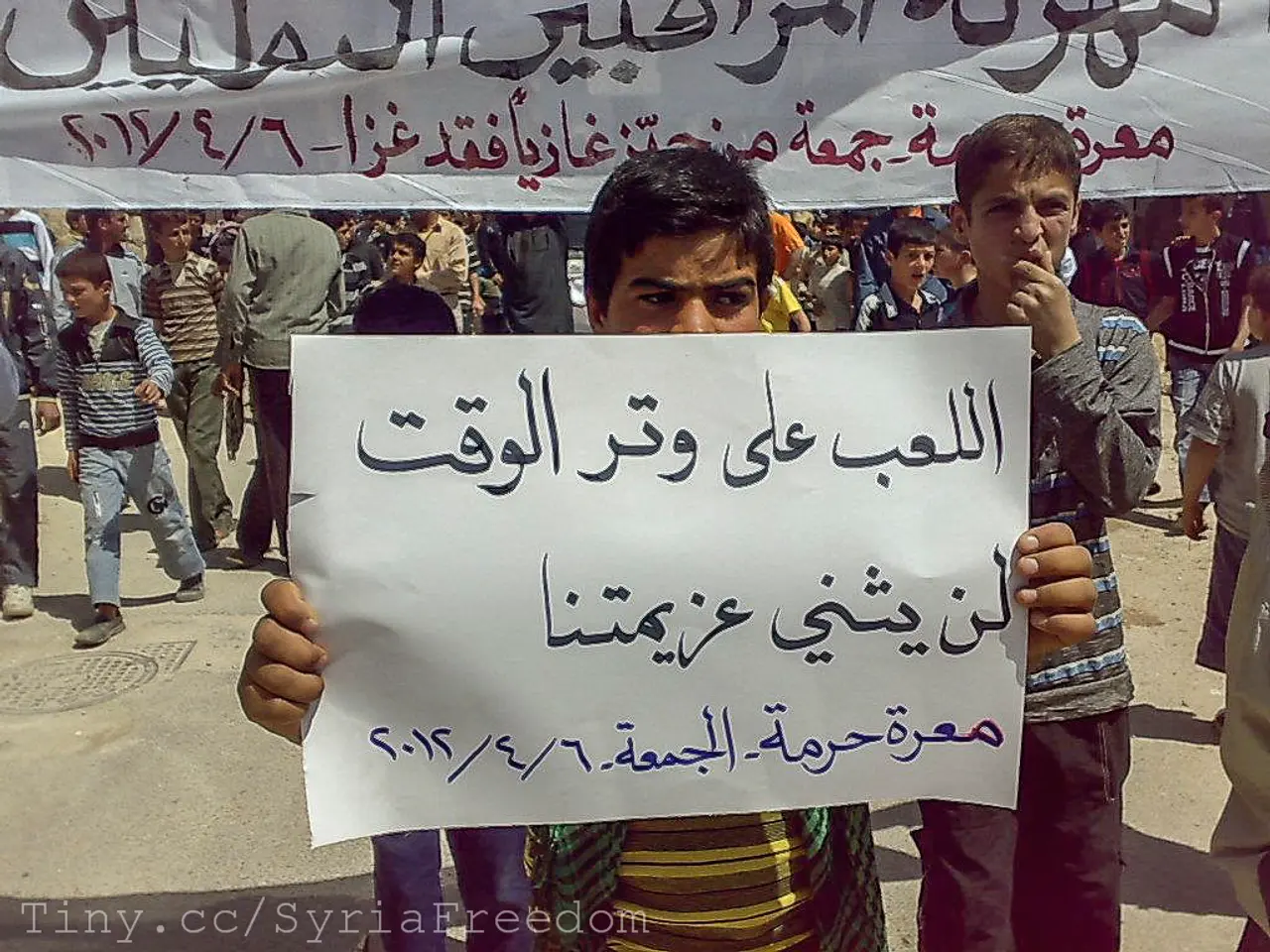Potential for 2024 civil unrest, reoccurring without specific location or timing identified
In the Northern Irish town of Ballymena, two men, Kevin Rous and Raymond Labaniego, have been victims of a series of attacks that are part of a campaign of anti-immigrant violence. Rous's home was firebombed while he was on a night shift at the Wrightbus factory, and Labaniego barricaded himself in his home as a mob attacked it.
This wave of hate-fuelled unrest has spread across nearly 30 towns and cities in the UK, with similar incidents reported in Canary Wharf, Portsmouth, Southampton, Bournemouth, Leeds, and Norfolk. Attempts were made to set fire to hotels housing people seeking asylum in Tamworth and Rotherham.
The violence bears striking resemblances to the riots that occurred across the UK in the summer of 2024, following the murder of three young girls at a dance class in Southport, Merseyside. False claims that the killer was a recently arrived Muslim immigrant spread rapidly on social media, leading to attacks on the town's mosque and local businesses.
The demonization of immigrants and minorities in the UK has contributed to polarized political conversations that sometimes escalate into violence. Politicians such as Nigel Farage have publicly blamed immigration for increased crime rates, including a claimed rise in sexual assaults, fueling negative stereotypes against immigrant communities. Such rhetoric is often used to garner electoral support by creating fear and scapegoating minorities.
This political environment can legitimize hostility and sometimes incite acts of violence against immigrant and minority populations. Demonization fosters social divisions and justifies harsher policing or restrictive policies, which can escalate tensions further. The aftermath often involves increased mistrust and fear within communities, challenges to social cohesion, and difficulties in integration.
Although direct incidents of violence linked explicitly to political demonization in the UK are complex and multifaceted, the pattern follows known dynamics where politicians exploit xenophobic narratives to stoke fear, which aligns with broader research on fascism and violence, wherein demonizing an out-group is a preliminary step that precedes violent actions.
As the situation escalates, politicians and pundits are using terms like "tinderbox" and "powderkeg" to describe the situation. Deputy Prime Minister Angela Rayner has warned of a potential "summer of riots". Nigel Farage has spoken of "civil disobedience on a vast scale".
However, it's crucial to note that the issues won't be fixed with aggressive policing and harsher sentences for violent protesters. There is a need to change the way we talk about immigration and confront deep-rooted suspicion, fear, and hostility towards asylum seekers. The demonization of immigrants and minorities must be addressed to foster a more inclusive and peaceful society.
The widespread incidents of anti-immigrant violence, such as the attacks on Kevin Rous and Raymond Labaniego in Ballymena, are part of the general-news cycle yet also overlap with crime-and-justice concerns. This violent wave, echoing the riots in the summer of 2024, has become a contentious issue in UK politics, with politicians like Nigel Farage fueling fear and division by attributing increased crime rates to immigration. The ongoing rhetoric of demonization contributes to a tense political environment, potentially legitimizing acts of violence and posing threats to social cohesion.
